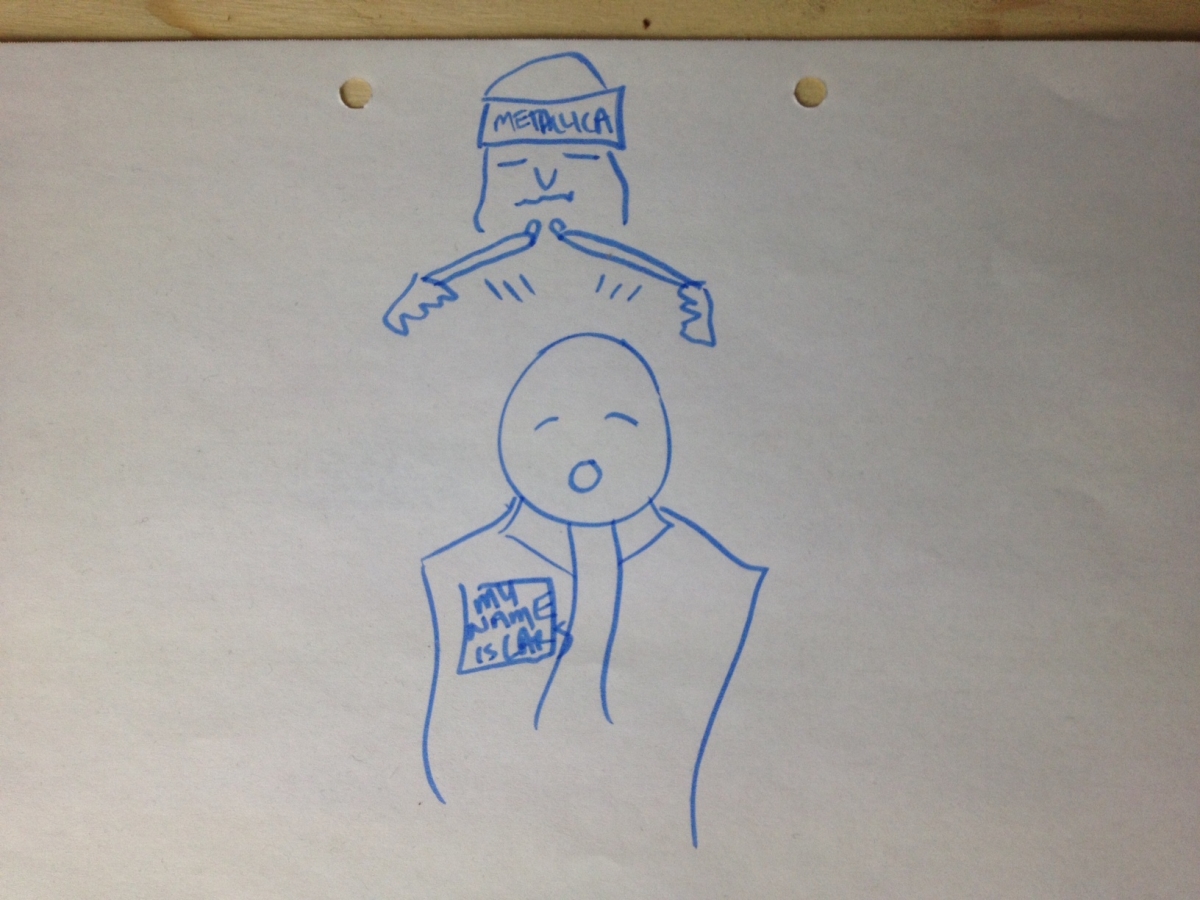Wed, 21 September 2016
Or are you? Admit it. It’s not always fun and games. Sometimes life really gets you down. That’s where thinking about death can be strangely uplifting. In fact, there are powerfully positive and empowering things that can happen when you put time into the notion that one day, you’re not going to be here anymore. For example, by putting your affairs into order, you can live better now because you’re free from worrying about what will happen after you die. Not enough people put time into this, leaving chaos after their demise that tears families apart. And that can make the memory of your life a bitter pill to swallow for years to come. But that’s not the direction I want to take us in. Rather, these three simple activities will make your life more memorable starting now. All you have to do is give them a try and you’ll be amazed by how they help.
1. Imagine Your Funeral
Sounds grim, I know. But once you get into it, seeing and hearing your friends, family and colleagues acknowledge your passing creates perspective and insight that can improve your happiness. This brain game is best played with pen and paper. Make a list of two friends, two family members and two colleagues (or fellow students if you’re still in school). Next, write down in their voices one positive memory each person will share about you at your funeral. It could be a story or just a description of an attribute. Focus on the positive. Don’t invite haters to your funeral. Really feel the positive sentiments and enjoy the warmth they create. I read this weird little exercise in Richard Wiseman’s 59 Seconds. It’s highly recommended if you’d like some of the scientific background behind this positivity technique.
2. All Life’s Profoundest Pleasures Are Found Here
You probably already know The Road Not Taken by Robert Frost: TWO roads diverged in a yellow wood, Then took the other, as just as fair, And both that morning equally lay I shall be telling this with a sigh
There’s Mathematical Truth To Frost’s Claim:You’re much more likely to live a more interesting life simply by taking alternative paths. And the sooner the better. As we age, many of us grow more conservative. Not because getting old switches on some kind of political gene. It’s because the more assets we gather, the more protective we become of them. And the biological need to protect the status quo can be irrationally strong. So strong that people have refused to flee volcanic danger zones driven by conservative inertia (this problem relates to social inertia, which is well worth learning about).
Live Life Like It’s A Gameshow
The Road Not Taken principle relates to something called The Monty Hall Problem. It refers to situations of choice in which it is counterintuitively beneficial to change your mind. The core issue isn’t the math, however. The real point of interest is that most people will stick with their original decision despite the benefits of traveling the road not taken. I’ve seen this play out hundreds of times as a magician with a simple question that leads over 90% of people to stick with their original decision. Merely by asking people if they’d like to change their mind and even offering them handsome sums of money if they do, I create the illusion of complete and utter free will because I know that the vast majority will stick with their original decision.
When The Sane Choices In Life Are Actually Insane …
I’ve seen The Monty Hall principle play out in my personal life too. During a difficult time when I couldn’t find a university teaching gig, I applied to get high school teaching certification and did the necessary voluntary teaching in schools to qualify. As a former university professor, this is not what I wanted to do in life, but I felt driven to teach. And it was taking action, which was far better than sitting around and biting my fingernails. Then, out of the blue came the invitation to rejoin The Outside, record an album and go on tour. At that point in my career, doing something like that was insane. Nearly every person I talked with about the option agreed, and yet I knew the Monty Hall Problem and let it guide me. And the reality is that the traditional path was truly the insane one. Plus …
The Sane Choice Would Have Been |
Wed, 14 September 2016
That’s all fine and dandy, but there’s a catch: Playing brain exercise games on your “smart phone” is not necessarily brain exercise. Not by a long shot.
Brain Exercises Or Brain Thinners?
In fact, some of those brain games don’t exercise your brain at all. You don’t have to take my word for it either. Just check out all the people on this live call who totally agreed: Instead of helping you, those apps train your brain to get good at completing tasks within the world of those apps. The mental fitness doesn’t apply to other parts of your life. And as we discussed in the video above, your memory and brain fitness exercises need to be both the dojo and the exercise.
Use Concrete Brain Exercises And Avoid Abstract Ones
Bottom line: If you’re exercising your brain on an abstract level but not directing the fitness at specific life improvement goals, you’re missing out. Your brain fitness must be targeted at specific goals so you get tangible results. And if you’d like brain exercises that do improve your mind and give you a great mental workout that matters, give the following easy exercises a try. I promise they’ll be fun and give you a memory improvement boost in a short period of time. By the way, if you also want a detailed list of methods that will improve your memory and help you remember everything better, please check out: How to Remember Things: 21 Techniques For Memory Improvement. And in case you weren’t aware that you can listen to me narrating this post, click play here and I’ll happily speak to you as you discover these powerful brain exercises.
1. The 4-Details Observation Exercise
Gary Small talks about memorizing four details of people you encounter out in public. For example, let’s say someone is wearing a gray sweater, black hat, red belt and green shoes. The goal is to observe the details first and then recall them later. Some scientists call brain exercises like these “passive memory training.” They’re passive because you’re not using any special memory techniques. You’re just asking your mind to do what it was designed to do: remember. Why does this matter? It matters because we don’t ask our minds to practice observation enough. For that reason, we fail to observe. We also fail to observe things that we aren’t seeing, such as by making visual images of movements we hear in other rooms. I teach about how to complete this simple visualization and memory exercise in this video. If you’d like to be a better observer of the world around you, this exercise will help. It’s also scalable. You can start with observing just one person per day. Once you’ve gotten good at recalling four details of just one person, you can add more information or more people (or both). If you like, you can also notice details about buildings, cars, movies or series, foods that improve memory, etc. But focusing on people is the more potent. Being observant of others around you is a great social skill.
2. Number Brain Exercises |
Wed, 7 September 2016
And as far as I know, no country on the planet includes dedicated memory training in its educational programming. The result? We have all experienced unnecessary pain and frustration thanks to forgetting precious information.
But That’s Not The Biggest Problem!
The biggest problem is that we don’t always know the signs related to our memory problems. Without that critical insight, we can’t make proper decisions about taking memory training. (Worse, you might wind up wasting time on memory training software that you really don’t need if you have a solid understanding of mnemonics and other memory techniques.) Here’s the good news: I know the signs that you need memory training. And I have the solutions, none of which involve wasting time on tedious memory training games or the fraud of photographic memory training. Interested? Let’s go through each of the 9 signs you need memory training in detail so you have a better grip and know exactly what to do. You’ll find a tip included with each sign that will help ease each problem. Work on improving just one issue per month and well within a year, you will be the owner of a superior memory you’re proud to call home.
Sign You Need Memory Training #1: |
The Magnetic Memory Method Podcast

Categories
generalMemory Improvement Tools
Memory Method Tips
Brain Exercises for Memory Improvement
Memory Improvement Case Studies
Podcast
Guest Post
Memory Palace Tactics
Practical Memory Techniques
Uncategorized
Improve Memory Q&A
Archives
AprilMarch
February
January
December
November
October
September
August
July
June
May
April
March
February
January
December
November
October
September
August
July
June
May
April
March
February
January
December
November
October
September
August
July
June
May
April
March
February
January
December
November
October
September
August
July
June
May
April
March
February
January
December
November
October
September
August
June
May
April
March
February
January
December
November
October
September
August
July
June
May
April
March
February
January
December
November
October
September
August
July
June
May
April
March
February
January
December
November
October
September
August
July
June
May
April
March
February
January
December
November
October
September
August
July
June
May
April
March
February
January
December
November
October
September
August
July
June
May
April
March
February
January
December
November
September
| S | M | T | W | T | F | S |
|---|---|---|---|---|---|---|
| 1 | 2 | 3 | ||||
| 4 | 5 | 6 | 7 | 8 | 9 | 10 |
| 11 | 12 | 13 | 14 | 15 | 16 | 17 |
| 18 | 19 | 20 | 21 | 22 | 23 | 24 |
| 25 | 26 | 27 | 28 | 29 | 30 | |
Syndication

 It sucks to think about death, doesn’t it? You’re busy enjoying life, after all.
It sucks to think about death, doesn’t it? You’re busy enjoying life, after all. Lots of people do brain exercises, often in the form of
Lots of people do brain exercises, often in the form of 
 A lack of memory training plagues every nation. It’s true.
A lack of memory training plagues every nation. It’s true.
